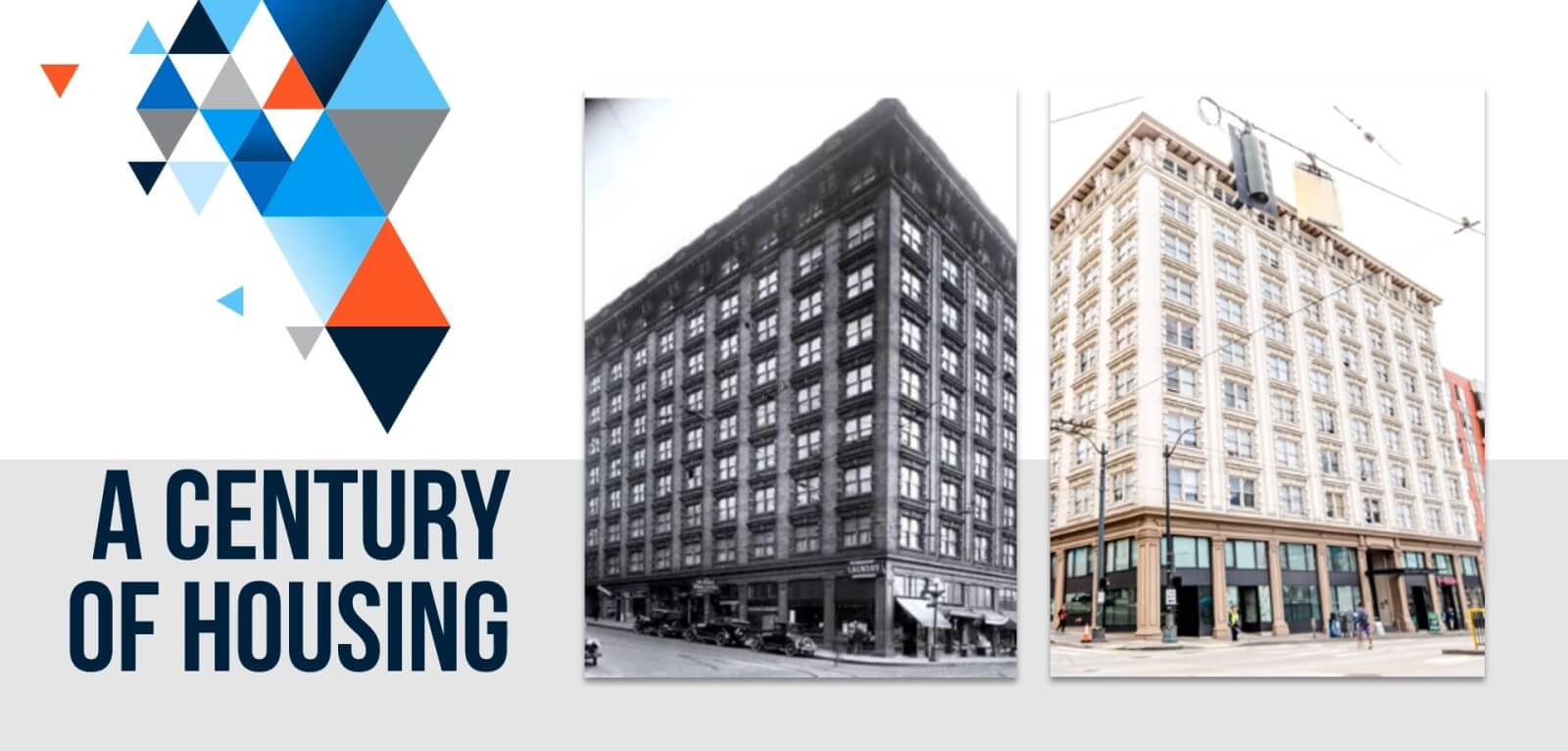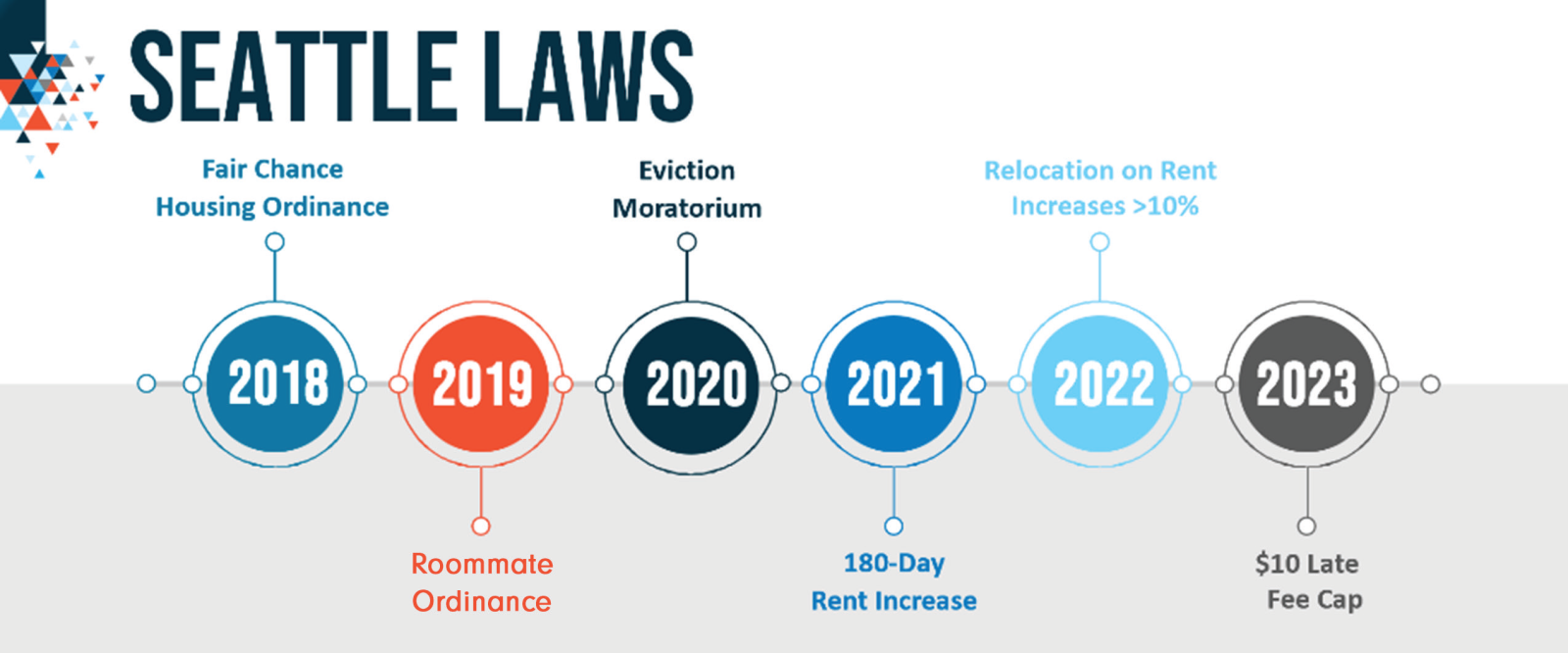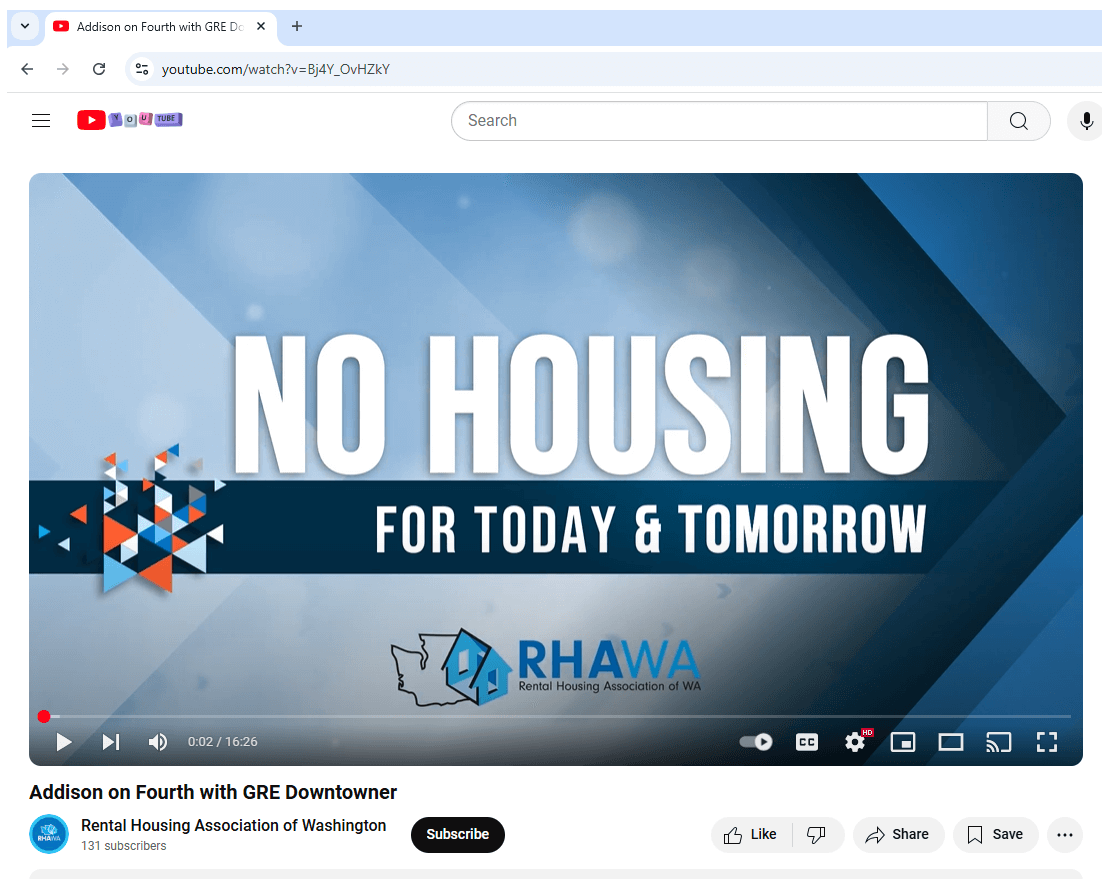RHAWA Talks with George Petrie of Goodman Real Estate
 If you have been following rental housing news coming out of Seattle or are an avid reader of CURRENT, you will no doubt be aware that GRE Downtowner, a regional real estate firm, has filed a lawsuit against the City of Seattle for how the rental housing laws have affected their ability to provide safe and affordable housing. Feel free to go back to the December issue of Current for an in-depth look at the lawsuit itself and the press conference that RHAWA helped facilitate to support our long-time member.
If you have been following rental housing news coming out of Seattle or are an avid reader of CURRENT, you will no doubt be aware that GRE Downtowner, a regional real estate firm, has filed a lawsuit against the City of Seattle for how the rental housing laws have affected their ability to provide safe and affordable housing. Feel free to go back to the December issue of Current for an in-depth look at the lawsuit itself and the press conference that RHAWA helped facilitate to support our long-time member.
 For this article though, I want to dive into an interview from a recent episode of Housing Matters, the RHAWA podcast. In this podcast, I sat down with George Petrie, the CEO of Goodman Real Estate, the company who owns the Addison on Fourth. I started our conversation by asking what the original intent and mission was for the Addison as well as a little history of the building
For this article though, I want to dive into an interview from a recent episode of Housing Matters, the RHAWA podcast. In this podcast, I sat down with George Petrie, the CEO of Goodman Real Estate, the company who owns the Addison on Fourth. I started our conversation by asking what the original intent and mission was for the Addison as well as a little history of the building
“The Addison was originally the New Richmond Hotel, built approximately 1911,” Petrie said, and it operated as a hotel for roughly 50 years. Then in 1969, it was converted to affordable housing for those at 80% area median income (AMI) until 2010 when Goodman Real Estate purchased the building to continue the tradition of 80% AMI housing. “We spent over $20 million renovating it. It’s got a new lease on life. There’s really no system in it that wasn’t touched. It’s a spectacularly beautiful building that really maintains the urban fabric of that historical era, in a location that is a part of the key foundation of the city on Fourth Avenue South and South Jackson,” he also spoke to the outpouring of support in trying to preserve such a historical and iconic building.
“Everybody was very excited about the idea that an older building could be repurposed as opposed to tearing it down. That’s actually a very green thing to do. It’s a lot easier to renovate an existing building on the environment, than to build new. So, we had quite a bit of groundswell support for the building, both from the neighborhood, the International District, but also from the Washington State Housing Finance Commission.”
Everything was running smoothly until in 2018, the Seattle City Council began to debate and subsequently pass several “tenant protection” bills over the course of the following years. Some of these policies include: Fair Chance Housing, Roommate Ordinance, Winter and School Year Eviction Moratoriums, 180-Day Rent Increase Notice, Relocation Assistance, and Late Fee Cap.

So how has the compounding nature of all these laws affected GRE’s ability to provide and maintain safe and affordable housing? Some alarming issues have arisen especially from the combination of Fair Chance Housing, the Roommate Ordinance, and the Winter and School Year Eviction Moratorium.
Fair Chance Housing states that anything brought to light on a background check of a tenant, apart from sex offender status, is not allowed to be considered or even viewed as a determinant for tenancy. This means a housing provider has virtually zero ability to properly background screen new tenants moving into a unit. Previously, if a tenant had something concerning show on their background check, a committee would meet and discuss if the tenant would be allowed to move in. Very rarely was someone completely barred from becoming a tenant.
The Roommate Ordinance states that anyone can have a member of their immediate family move in with them without any need for background screening OR signing onto the lease for the unit. This has led to people moving into a building without the housing provider or neighbors having any knowledge, and in some cases has led to violent outcomes. This makes it even more difficult to legally evict that person as well since they are not actually listed on the lease OR if Seattle is within the window of December 1-March 31.
The Eviction Moratorium has led to a larger number of tenants choosing not to pay their rent during the winter months knowing they will not be removed from their unit. Even in cases of dangerous or menacing tenants, it is extremely difficult to remove them during the moratorium.
Not-for-profit housing groups are now coming forward to ask for this policy to be changed in addition to the private sector. Sharon Lee, the Executive Director for the Low-Income Housing Institute, recently penned an opinion editorial in the Seattle Times stating the same issues as the private sector. Not for profit groups were recently given $14.2 million by King County to make them solvent once again because they were so far in the red from unpaid rent. If people don’t pay rent, housing groups cannot pay their operating and maintenance costs, and lastly no bank will lend money to build more affordable housing because the costs are not being covered for the buildings already in operation.
All these policies together erode tenant safety, forcing those following the rules to live next door to someone who may not have been properly background screened and who may not even be listed on the lease for the unit they are occupying. All these issues combined destroy what all tenants are entitled to in their residence, quiet enjoyment.
“Within a lease there’s something called 'quiet enjoyment' that everybody who signs a lease has a right to, and when one person’s behavior impacts another person’s quiet enjoyment, the housing provider has to step in and try and adjudicate between the two.”
Mr. Petrie is referring to the inability to evict and remove dangerous tenants as well as properly background screen residents, and at the Addison, they have had issues of violence and threats made by those not screened while at the same time not being able to remove them from the premises.
“So, the policies that got put in place stripped away the ability for the housing provider to manage the behavior within that building...which led to the degradation of the living environment, which then led to the degradation of the social media posts, which then led to higher vacancy, lower rents, and eventually the building is now no longer profitable. It doesn’t cover all of its operating expenses.”
Trying to manage the new rental environment in Seattle, the security costs for the building have quintupled since 2018, safety concerns and drug use have skyrocketed, and the staff turnover has been immense. This led GRE Downtowner to file a lawsuit against the City of Seattle on October 22, 2024 for a taking of property. The argument is that because of the laws passed and the resulting financial issues, the building has lost significant value, and GRE is being forced to operate at a loss while struggling to maintain a safe and clean environment for quiet enjoyment.
 For my full interview with George Petrie of Goodman Real Estate, check out the RHAWA podcast Housing Matters wherever you get your podcasts.
For my full interview with George Petrie of Goodman Real Estate, check out the RHAWA podcast Housing Matters wherever you get your podcasts.
If you want to learn more about the issues at the Addison on Fourth, check out the RHAWA YouTube Channel for a short video presentation from Goodman Real Estate about their issues at the Addison on Fourth and all the data to validate their concerns.

